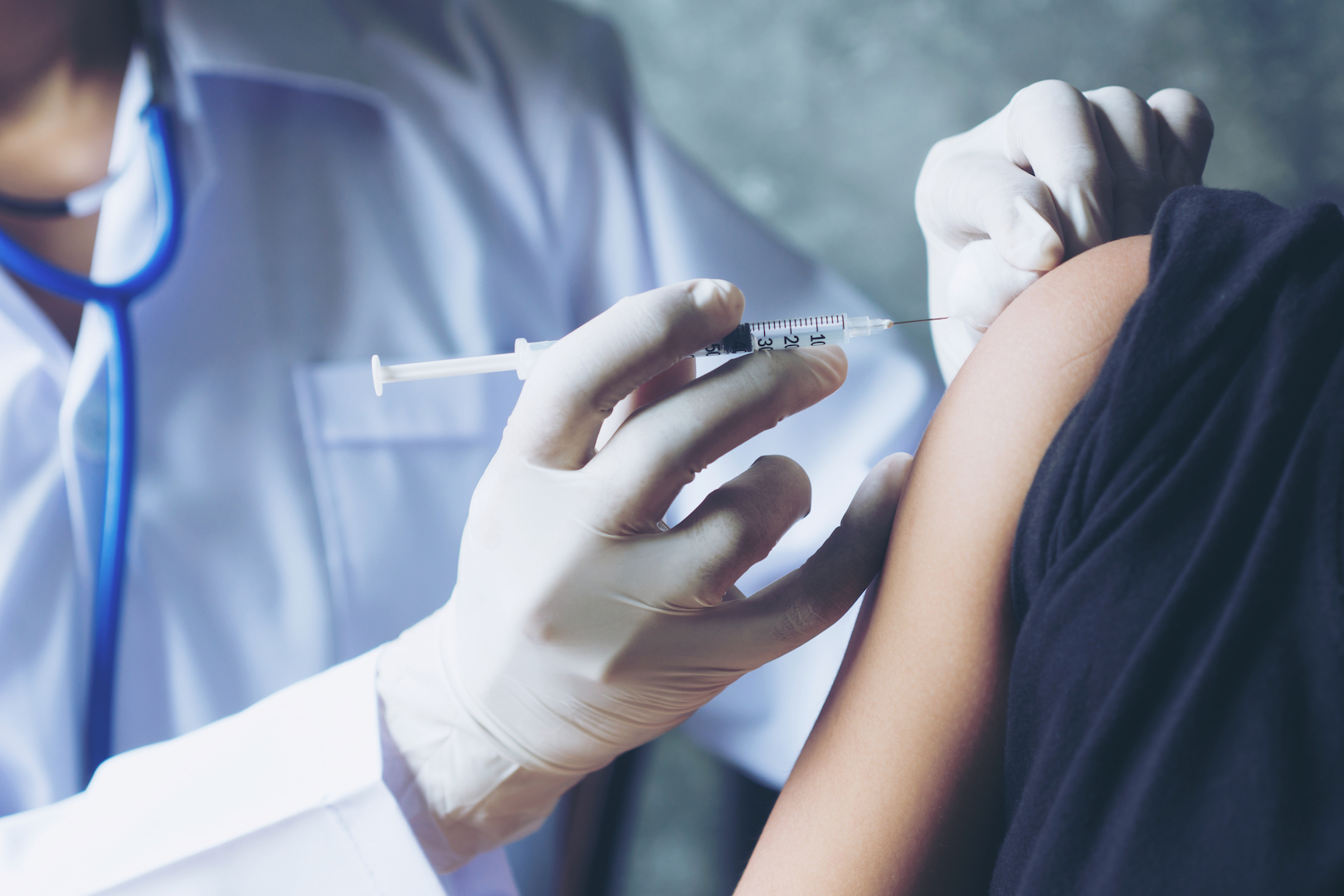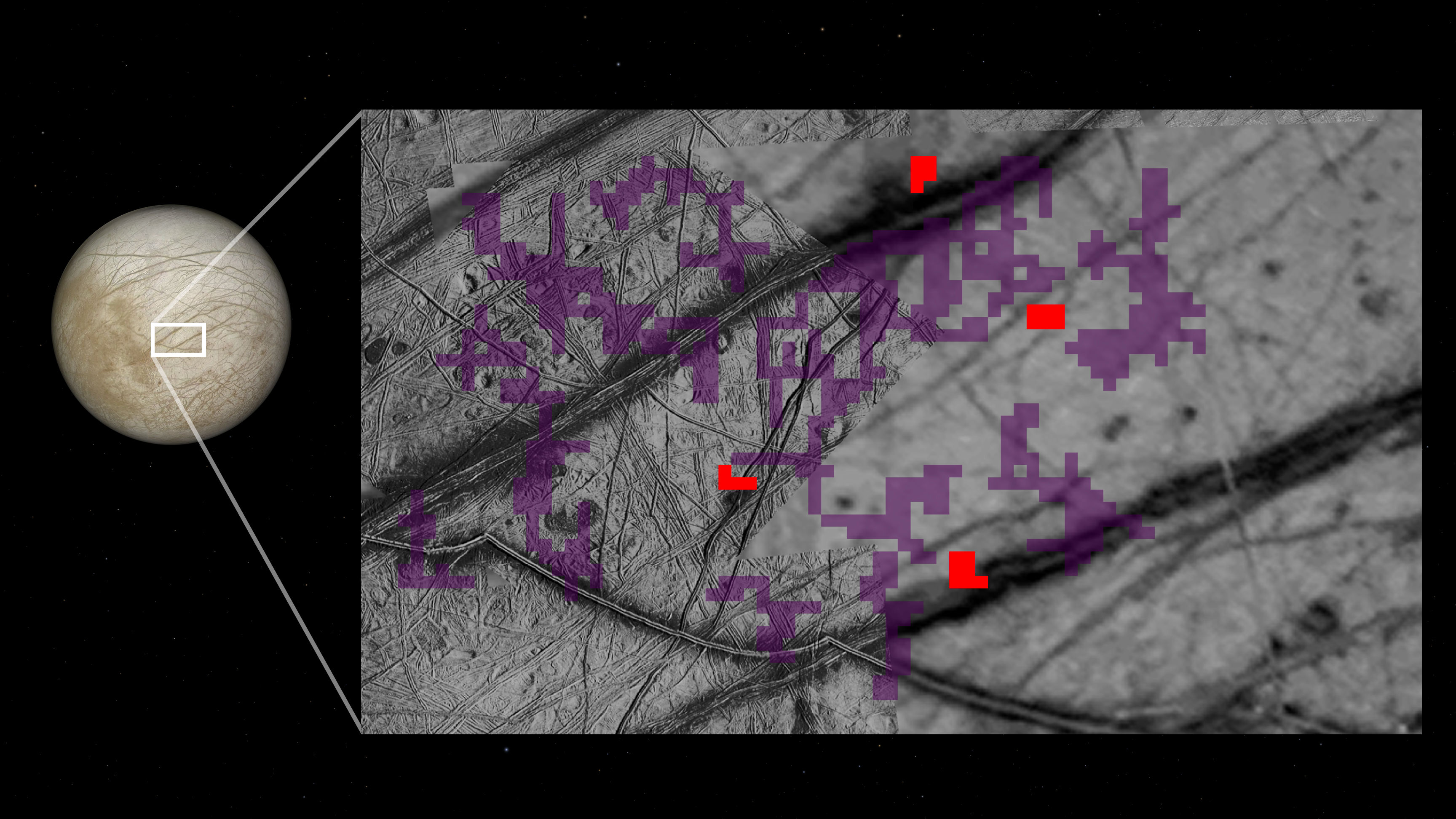Should researchers deliberately infect volunteers with coronavirus to test vaccines?
More than 20,000 people have already expressed interest.

Get the world’s most fascinating discoveries delivered straight to your inbox.
You are now subscribed
Your newsletter sign-up was successful
Want to add more newsletters?

Delivered Daily
Daily Newsletter
Sign up for the latest discoveries, groundbreaking research and fascinating breakthroughs that impact you and the wider world direct to your inbox.

Once a week
Life's Little Mysteries
Feed your curiosity with an exclusive mystery every week, solved with science and delivered direct to your inbox before it's seen anywhere else.

Once a week
How It Works
Sign up to our free science & technology newsletter for your weekly fix of fascinating articles, quick quizzes, amazing images, and more

Delivered daily
Space.com Newsletter
Breaking space news, the latest updates on rocket launches, skywatching events and more!

Once a month
Watch This Space
Sign up to our monthly entertainment newsletter to keep up with all our coverage of the latest sci-fi and space movies, tv shows, games and books.

Once a week
Night Sky This Week
Discover this week's must-see night sky events, moon phases, and stunning astrophotos. Sign up for our skywatching newsletter and explore the universe with us!
Join the club
Get full access to premium articles, exclusive features and a growing list of member rewards.
If there's a single clear note rising from the cacophony of coronavirus news, it's that the pandemic will not end without a vaccine. Though dozens of vaccine candidates are in the works, some hopping through clinical trial phases at an unprecedented speed, infectious disease experts are saying that it will take at least 12 to 18 months until a coronavirus vaccine could be ready for use in the general public — and that's in the best-case scenarios.
But experts are now proposing a slightly outlandish, ethically questionable idea: a so-called "human challenge study" that would deliberately expose volunteers to the coronavirus to quickly understand whether or not candidate vaccines work and if they are safe. More than 20,000 people around the world have already expressed interest in participating in such a challenge, if it were ever to be brought to light.
"I just want this to be solved already," a person from Romania wrote on a website called 1daysooner, an online initiative that's tallying the number of people who would volunteer for a human challenge trial. An individual from Kenya also expressed willingness to participate, writing on the site: "I am a journalist who reports in and on the developing world, and participating would both allow me to perhaps contribute in a small way to helping the sorts of people I report on."
Related: 13 coronavirus myths busted by science
Such human challenge studies are risky for the volunteers, so they aren't typically conducted — but they have been done before. In 2018, researchers at Saint Louis University in Missouri created what they dubbed "Hotel Influenza" to house volunteers and deliberately expose them to the flu in order to test the efficacy of flu vaccines, according to a previous Live Science report.
That same year, in a study looking at the effects of a bacteria on the immune system rather than at the efficacy of a vaccine, researchers exposed 34 people in the United Kingdom to whooping cough bacteria, according to another Live Science report. Similar, sometimes controversial trials have gleaned important information on diseases or treatment of diseases including cholera, typhoid, dengue, malaria, and yellow fever, according to a commentary published in the journal Trials in Dec. 2019.
All of these human challenge studies were conducted on volunteers who were made aware of the risks of such an exposure, in contrast to some barbaric studies conducted in the past on people — such as prisoners, mentally disabled people and black people — without informed consent.
Get the world’s most fascinating discoveries delivered straight to your inbox.
But even with such transparency and consent, is such a trial ethical?
'A whole world in peril'
If the answer to that question is "yes", there's a second question: Is it right to expose people to a disease when there isn't a treatment?
"We do save people from dying from COVID but it's hard, we don't have a magic drug to pull them back," said Arthur Caplan, head of the division of medical ethics at the NYU Grossman School of Medicine. Even so, given the immensity of the situation, "it's hard to argue that we shouldn't try something that should speed up the process of finding a vaccine."
After all, "this isn't taking on a single disease in a small population; this is a whole world in peril," Caplan told Live Science. "So I think the cost-benefit makes sense."
In a study published online April 20 in the journal Vaccine, entitled "Extraordinary diseases require extraordinary solutions," Caplan and Dr. Stanley Plotkin, the physician who invented the rubella vaccine in 1964, concluded that despite the dangers, it is ethical to recruit volunteers who would be made sure to fully understand the known and unknown risks of being exposed to the virus, which include permanent disability and death.
Related: Why COVID-19 kills some people and spares others.
On May 6, the World Health Organization also published a set of "key criteria for the ethical acceptability" of such SARS-CoV-2 human challenge studies. The criteria include having a "strong scientific justification" for conducting the study and making sure the benefits outweigh the risks.
Human challenge studies shave months — if not years — off conventional vaccine trials, Caplan said. That's because in a typical trial, tens of thousands of people are given a vaccine and then the researchers wait for a proportion of participants to be naturally infected with the virus to see if the vaccine worked. Measuring how many antibodies the body produces in response to the vaccine isn't enough to determine if a person is immune.
Related: After recovering from COVID-19, are you immune?
So "you're depending on natural infection and that can ebb and flow," Caplan said, noting that a number of COVID-19 treatment studies have already ended prematurely because they started when COVID-19 was rampant in an area and then struggled to recruit enough people when new infections declined.
The fastest vaccines ever created still took 4 to 5 years to make, most take 15 to 20 years, Caplan said. "Now, we have a lot of people all of a sudden all working on one disease, and I don't think that's ever happened." Such focus could mean a faster vaccine timeline, he added.
But still, the bottleneck is studying the safety and efficacy of the vaccine, which "doesn't speed up no matter how many people are working on it," he added.
Without challenge studies, a vaccine is very unlikely to make it into our hands before at least 2 years from start to finish — that's even assuming that the first vaccines tested will work effectively, he said. During that time, many more people will die of COVID-19, he added.
These types of studies, which would involve hundreds rather than thousands of participants, could quickly assess whether or not the vaccine works, if it has adverse effects and how much immunity it imparts. Still such a challenge is "risky... no doubt about that," Caplan said.
"The proposal's coming from one of the world's top bioethicists, we can't just dismiss it as a crazy idea," said Michael Kinch, the associate video chancellor and director for the centers for research innovation in biotechnology and drug discovery at Washington University in St. Louis, who was not part of the study. "It is obviously unprecedented, and for that reason, we have to be very careful."
How a challenge would work
The volunteers would have to be people who are unlikely to need rescuing if the vaccine didn't work and they got sick, or if the vaccine caused an adverse reaction, Caplan said. That means the challenge would likely be conducted in younger people, those aged 18 to 29, a group with a death rate that hovers around 0.03% based on data from China.
This makes sense, but "at the same time, they're not going to be reflecting what happens immune-system wise to the most at-risk patients, which are the elderly," Kinch said. The immune systems of young people are very different compared with those of older people, he said. "Hopefully, you learn something from the healthiest and the least susceptible that can be applied to other groups," he added.
The challenge study would also need control groups who don't receive a vaccine and might become ill from the virus, the authors wrote in the study. Participants would need to be housed near a hospital and observed for a couple months pretty closely, Caplan said. One of the key requirements of such a study would be to pick people who are able to consent and who understand the risks of such an experiment.
Related: 20 of the worst epidemics and pandemics in history
Researchers would need to get "very good consent" from these participants, quiz them to make sure they understand the dangers, make them sign a form, videotape them giving consent, and they should probably steer clear of paying them, Caplan said.
"They have to be true volunteers with no ulterior motives or pressure to do this," Kinch said.
The first group of volunteers would likely be those who were previously exposed to the coronavirus and have antibodies to it, to determine whether or not those antibodies gave them full or partial immunity to a second exposure. Further studies would include people who haven't previously been exposed to the virus who would be given small doses first.
"That's hugely risky," Kinch said. If participants did become severely sick, they could be administered experimental drugs such as remdesivir or convalescent serum (blood from recovered patients that contains antibodies to fight the coronavirus), the authors wrote. "I'm optimistic about the early, early work that we're doing in convalescent serum," and you'd want those in hand, Kinch said. But there isn't a "cure" for the coronavirus and no treatment is completely effective.
Practically speaking, such a trial is probably not feasible. "Imagine who was going to sponsor that trial… they're going to be sued, guaranteed," he said. "Even if they're exempted from being sued, they're going to run the question of reputational risk."
A long-term side effect of such trials could be the anti-vaccination epidemic. "Vaccine skepticism is on the rise, we don't want to fuel that fringe conspiracy theory that they have," Kinch said. There's always a possibility that the vaccine won't work — or even worse, will enhance the adverse effects of the virus — which could fuel anti-vaccine sentiment, Kinch said.
"If people start rejecting vaccines or seeing them as actively negative, many people could be harmed and killed for refusing to take vaccines," Kinch said. "There is a finite amount of credibility that the scientific and the medical establishment have with the general public, and we want to be very concerned about not wasting that credibility."
- 11 surprising facts about the respiratory system
- The 9 deadliest viruses on Earth
- 28 devastating infectious diseases
Originally published on Live Science.
OFFER: Save 45% on 'How It Works' 'All About Space' and 'All About History'!
For a limited time, you can take out a digital subscription to any of our best-selling science magazines for just $2.38 per month, or 45% off the standard price for the first three months.

Yasemin is a staff writer at Live Science, covering health, neuroscience and biology. Her work has appeared in Scientific American, Science and the San Jose Mercury News. She has a bachelor's degree in biomedical engineering from the University of Connecticut and a graduate certificate in science communication from the University of California, Santa Cruz.
 Live Science Plus
Live Science Plus






